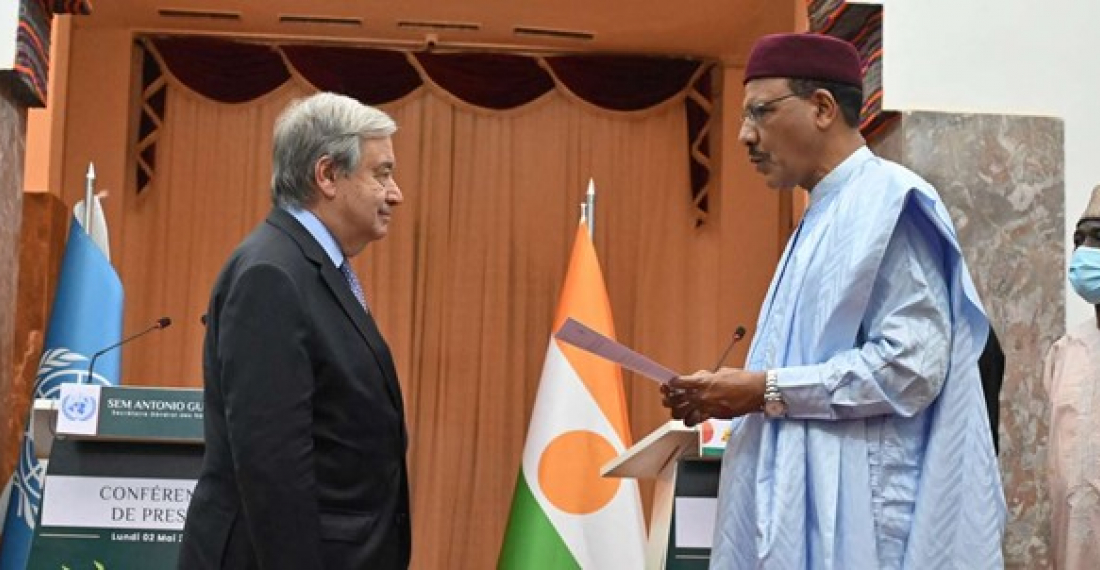- Armenia-Azerbaijan Strategic Expert Platform: Members emphasise the importance of the present moment for the South Caucasus and call for the momentum to be used for the long-term peace and prosperity of the region
- Thursday Interview: Dr. Anar Valiyev
- Food insecurity in Somalia has nearly doubled in the past year
- Türkiye evaluating potential measures in case of a US-Iran conflict
- European Parliament reaffirms support for Ukraine and EU Path
- EU moves ahead with Ukraine loan preparations despite Hungarian block
UN calls for more resources to support Niger's fight against terrorism in the Sahel

UN Secretary-General António Guterres called on the international community to invest in helping Niger's army in its fight against terrorism. Gutteres was peaking after his meeting with Niger's president on Monday, 2 May,
According to Guterres, investment in the stability of the Sahel through Niger must first focus on equipment and training for the Nigerien army. While affirming his support and underlining Niamey's “remarkable” performance in recent military operations, Guterres added that Niger could not stand on its own.
The Secretary General went on to acknowledge that regional institutions such as the G5 Sahel had been weakened by the recent coups in Burkina Faso, Guinea, and Mali. For this reason, and to prevent terrorist attacks from spreading to the Gulf of Guinea states, the international community must understand that terrorism in the Sahel «is not just a regional or African issue, but one that threatens the whole world».
However, Guterres said that a positive momentum in Niger could create a virtuous cycle of positive changes in the Sahel. The Nigerien parliament authorised last week the deployment of new foreign forces in their country, and France and the United States already have military bases in the capital Niamey and the northern Agadez region.
President Mohamed Bazoum acknowledged the commitment of the UN Secretary General to finding a way out of the evolving problem of terrorism, while recalling the need to adapt his response.
The UN chief noted from Niamey that the first victims of this conflict are civilians. According to UN figures, eight of ten victims of terrorist attacks are civilians.
The immense region of Tillabéri, located in the tri-border area with Burkina Faso, Mali, and Niger, has had to face repeated deadly attacks by various terrorist groups, and deaths more than doubled between 2020 and 2021 according to the Global Terrorism Index.
These groups are primarily the Islamic State in the Greater Sahara (ISGS) in the west, and Boko Haram and the Islamic State West Africa Province (ISWAP) in the south-east, bordering Nigeria.
However, insecurity is only one part of a multidimensional crisis. The government of Niger, the poorest country in the world according to the UN Human Development Index, is facing record food prices due to the war in Ukraine, malnutrition, and climate change.
By 2022, according to the United Nations, 15% of Niger's population - 25 million people - will need humanitarian assistance, as the number of acutely food insecure people has doubled since 2020.
In addition, repeated droughts and insecurity have had a negative impact on the agricultural sector, which represents 80% of Nigeriens' professional activity.
Thus, the redeployment of several thousand French and European soldiers to Niger and the UN's stated support represent a welcome hope for an anguished population.
The intelligence activities and air provided by the European forces could be very useful to fight efficiently on the ground.








